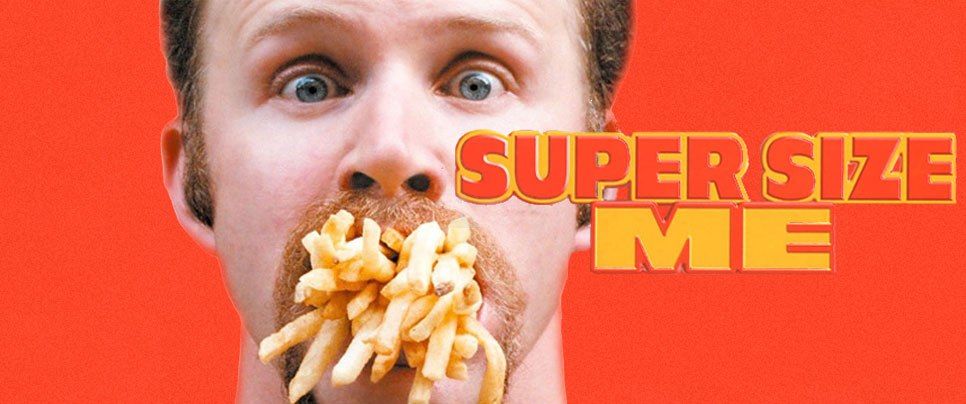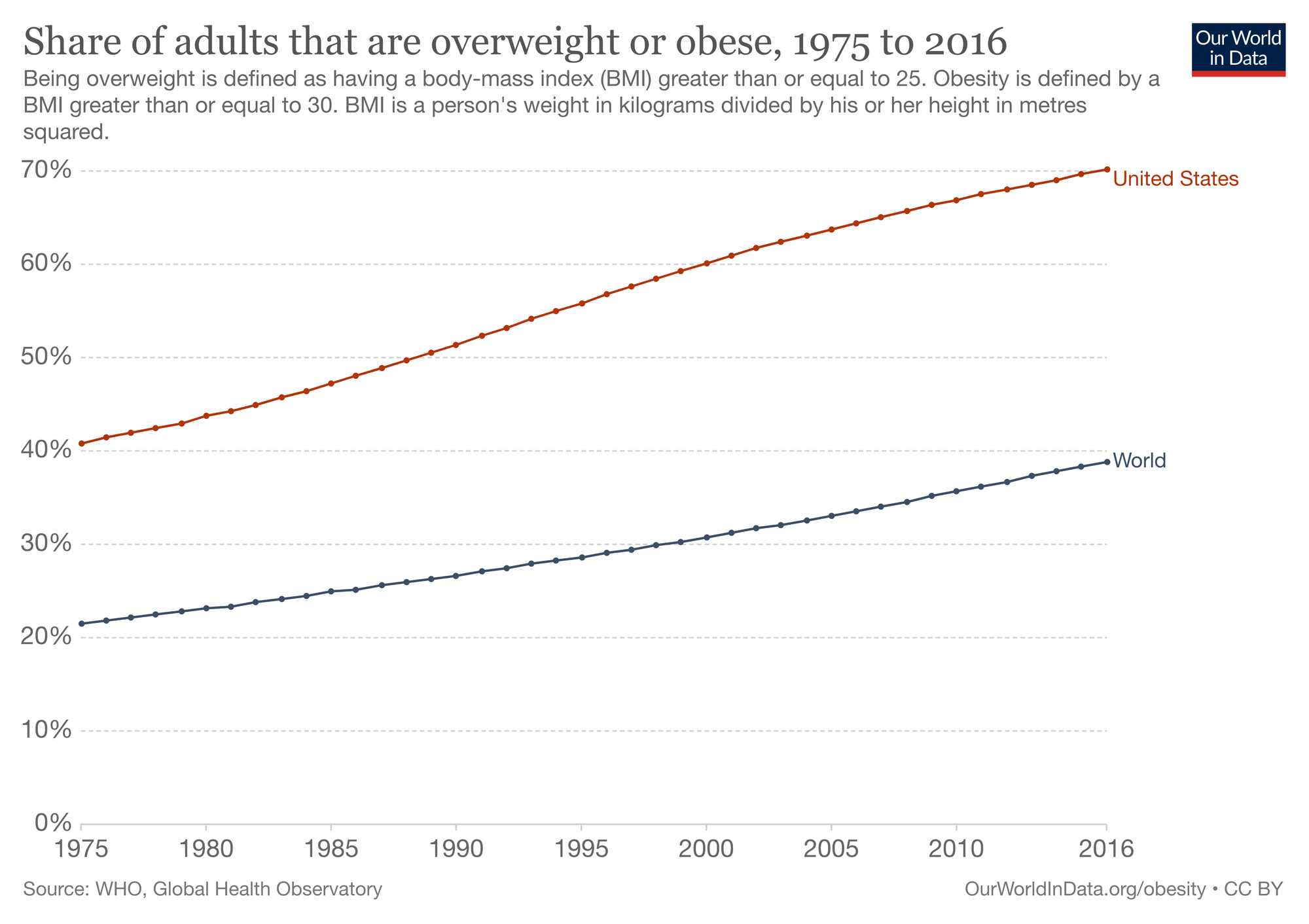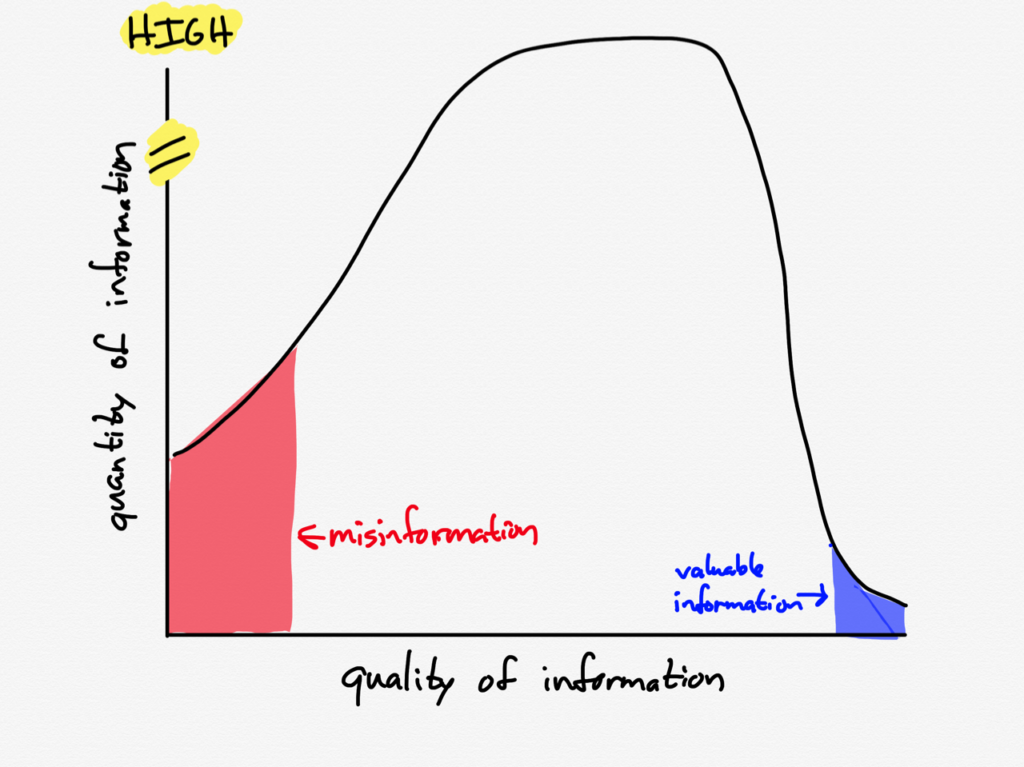You Are What You Read
I was twelve when I saw a grown man throw up for the first time. As part of our health class curriculum, we were watching a documentary called Supersize Me. The story was about an independent filmmaker who ate nothing but McDonald’s for a month. Unsurprisingly, he felt awful. His weight ballooned, his mood worsened, and his liver started failing. It was a binge of epic proportions.
And yes, he threw up on camera.

The point of the documentary was to prove that a fast-food diet was harmful. This idea is popular now, but most people weren’t thinking about nutrition at the time.
The year was 2004. The Surgeon General had only recently recognized the obesity crisis. There was an unclear relationship between diet and physical side-effects. People were fat and happy. Half of that last sentence is true.
Today, obesity is linked to almost five million premature deaths each year. 8% of global deaths are the result of obesity. 70% of adults in the United States are overweight or obese. This number continues to rise even after putting measures in place to bring attention to the issue.

Fast food restaurants took something that was previously scarce and made it abundant. Access to high-calorie, low-cost food caught an entire generation off guard. We know now that our physical health is dependent on what food we eat, but the transition left millions of people to live with the consequences.
The problem isn’t food. The problem is the quality of what we’re consuming.
There is a trend underway that poses serious health risks for Americans. The number of people affected is high and continues to grow every day. Experts are outspoken, but no one else seems to be listening. Big companies in positions of power are spending huge sums of money to avoid regulation. Something that was recently scarce has become abundant beyond our wildest dreams.
Did you notice that I’m not talking about food anymore? I’m describing social media.
Social media looks like real media in the same way that fast food looks like real food. Screen time among adults is up to over eleven hours per day. The number of studies linking sleep disorders and depression are stacking higher than a Big Mac. Congress has interrogated the world’s largest technology companies on their tactics to attract and retain consumer attention. Entertainment is unlimited and free.
The problem is that all information is not of the same quality. This quality gap is the core problem that social media platforms face: they rely on user content to drive engagement but can’t control what is shared. The default choice from the menu of McDonald’s is not healthy; the default content on social media is not valuable.

Stratechery: Defining Information
We’re living in a transition period. Just like you’d be hard-pressed to find a nutrition label in 2004, our shift to abundant content has come without warning labels. It’s hard to tell whether or not what you’re reading online is true. Bots have taken over our social networks. We spend time in echo chambers that reinforce our own beliefs while drowning out the opinions of others.
If the food analogy is helpful, think of your social media activity as an information diet. A physical diet determines a person’s health and weight; an information diet determines a person’s happiness and desires.
How someone defines a meaningful life is influenced by their expectation of what is possible and likely to happen within their lifetime. This perception has also been shown to depend on media exposure. For example, people watching more violent media gave higher estimates of the prevalence of crime in the real world.
It’s not that the screen time is bad per se, it’s the lack of quality in what we are experiencing. Technology companies have designed social media to expand a person’s desires in every direction. People are hungry for content that shows them a lifestyle better than their own. Slowly, people internalize these impressions and compare their own lives to the experiences they see online. We’re allowing ourselves to be pulled along by an algorithm that is optimizing for engagement instead of enjoyment.
There is hope; social media has the potential to connect people across the world based on common interests. When used as a tool instead of an escape from reality, these applications are an incredible way to expand a person’s horizons and improve access to low-cost education.
What you choose to follow influences your expectations for your life. This can be a good thing - the gap between what we want and what we have is the driving force of growth. However, expectations without a plan create an unfulfilled desire.
This is one of the biggest mistakes that people make when using social media. Subscribing to content without a plan is like ordering everything on the dollar menu. It tastes good, but you end up eating a bunch of junk.
Successful social media users are intentional. I believe that social media can catapult people into opportunities that otherwise would have remained unavailable. But it requires a bit of structure. A healthy information diet should play to the strengths of social media while seeking to minimize the downsides of over engagement. There are two main areas to consider:
- Accounts that help you “speak the language” of a topic that you want to pursue.
- Accounts that help you think differently.
Speaking the language
Social media is a great way to get direct access to individuals that would otherwise be unreachable. You can use this to your advantage. Imagine you’re trying to break into a new field, but don’t know much about the day to day workings of the industry. Here is your playbook:
- Follow the top one-hundred accounts related to the topic.
- Spend time each day to learn how they interact with each other. Pay attention to the words they use, the sources they reference, and the jokes they make.
- Begin participating in the conversation. Slowly at first, and build your voice over time. Use the DM feature to make personal introductions. Be helpful and contribute meaningfully.
Social media allows you to break into clubs that were formerly reserved for insiders only. Since these networks are (mostly) public forums, you can listen in without asking for permission. When the time comes to make your move, you’ll know enough to build a rapport and get your foot in the door.
Try to keep it focused: if you’re researching a new topic, follow everyone you can in that area. Once the research phase is over, remove those accounts to make room for new content. Following an account on social media means giving that person or business access to your brain for free. Have a high bar and review this list frequently.
Think differently
Successful people became that way because they were contrarian and right. Being a part of the majority does not guarantee success — the best outcome you can hope for is a median return.
Being contrarian and right means having access to information that is outside of the mainstream knowledge. Fortunately, social media has an incredibly long-tail of highly interesting niches. Since they are not well known, these communities are usually filled with people genuinely interested in the topic and willing to help others learn. Follow as many of these accounts as you can to observe passively. The best educations come from combining two ideas in a new way. The more diverse your information diet, the better chance you have of stumbling on a unique combination. (see: Geeks, MOPs, and sociopaths in subculture evolution)
Avoid accounts that only focus on breaking news or hot topics. By the time this information has reached mainstream accounts, it’s too late to be useful. Here’s a helpful heuristic: if you only share 1-2 connections with someone who is consistently putting out high-quality content, then you’ve found a proprietary information source. Consider how these sources relate to each other and then use your unique perspective to draw conclusions that others can’t see.
I have a confession: I hesitated to publish this essay. Social media is a difficult topic to write about since there is so much conflicting advice. The clinical data is unclear. I relied on my own experiences to write down a process that has worked for me. Unlike weight gain, the effects of social media are much less noticeable. What starts as a helpful tool can quickly become a rabbit hole with diminishing returns. I know I’m still working on it.
On Patrick Collison’s “Advice” page, he gives the following tip:
Make friends over the internet with people who are great at things you're interested in. The internet is one of the biggest advantages you have over prior generations. Leverage it.
A final note: leverage works both ways. Consider which end of the lever you’re on and use it intentionally.
Sunday Scaries is a newsletter that answers simple questions with surprising answers. The author of this publication is currently living from his car and traveling across the United States. You can subscribe by clicking the link below. 👇
If you enjoyed this issue of Sunday Scaries, please consider sharing it with a friend.